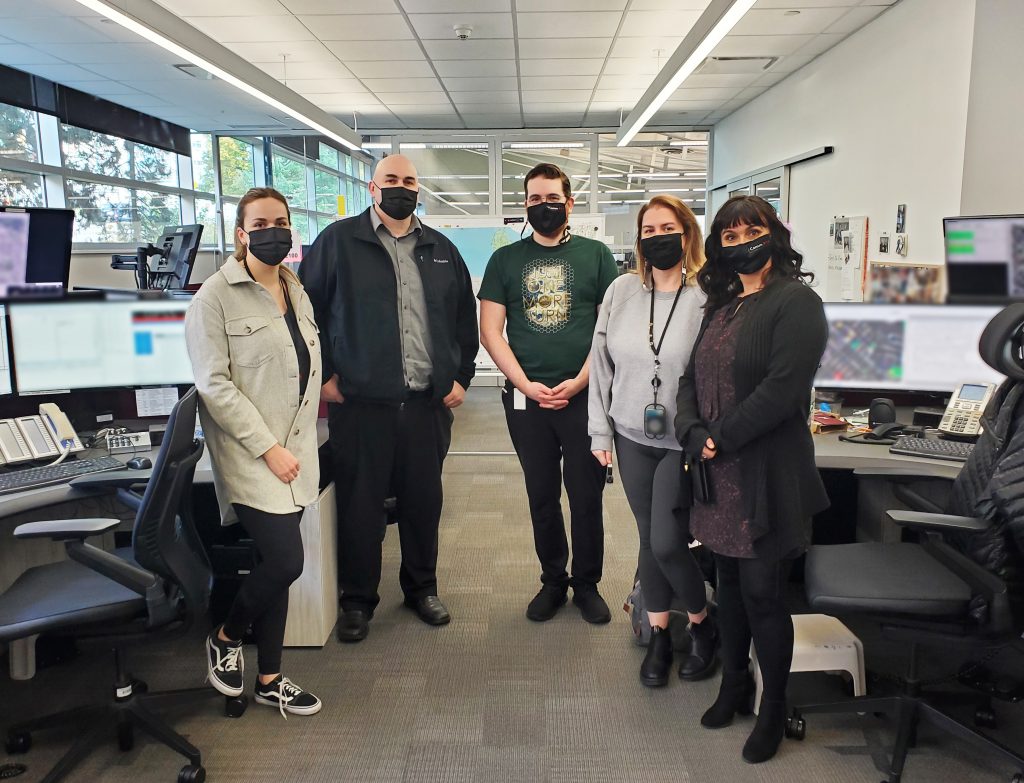NEWS RELEASE: Floods, fires, extreme heat and the pandemic did not deter nuisance calls to 9-1-1 in 2021
Vancouver, B.C., January 7, 2022— Nuisance calls to 9-1-1 continued to divert the precious time of B.C.’s emergency call takers during E-Comm’s busiest year in its 22-year history. The company received more than 1.9 million 9-1-1 calls in 2021, with many of the busiest days for 9-1-1 in E-Comm’s existence having occurred last year.
Despite three provincial states of emergency, the ongoing pandemic and high demand for police, fire and ambulance services, E-Comm call takers continued to field non-urgent calls on 9-1-1 lines. Familiar consumer complaints and general questions about COVID-19 put a strain on emergency call-taking as E-Comm dealt with record-setting influxes of calls from people experiencing real life or death emergencies.
“Our staff worked tirelessly throughout the heat dome, wildfires and flooding emergencies to support our first responder partners and get help to those who needed it as quickly as possible. It was disheartening to learn that we continued to receive 9-1-1 calls from people looking for information or trying to make general service complaints when so many communities were experiencing critical emergency situations,” says Jasmine Bradley, E-Comm’s executive director of communications. “Our call takers are trained to treat every call that comes through as an emergency, until they can determine otherwise. Every second that they spend speaking with someone who is upset about a mixed up coffee order or wanting to report a messy roommate, is time they could have been helping someone in a life-threatening situation.”
E-Comm, which handles 99 per cent of B.C.’s 9-1-1 call volume at its two emergency communications centres, has once again released its annual top 10 list of calls that don’t belong on 9-1-1. Despite ongoing efforts to draw the public’s attention to the appropriate resources to contact for consumer complaints, general information, directions or to check the time, many of the calls found on the 2021 list are repeat offenders. By sharing this list, E-Comm hopes to remind people that every time someone calls 9-1-1 about a non-urgent matter, they put the lives of other British Columbians at risk.
Top ten nuisance calls of 2021
- The barista mixed up their coffee order
- A pedestrian was splashed on the sidewalk
- Requesting a COVID test
- Enquiring about becoming a 9-1-1 call taker
- Wanting to know where they could vote during the federal election
- Looking for weather updates
- Asking for directions
- Wondering why the bus wasn’t coming
- Enquiring about COVID restrictions
- Reporting a messy roommate
“At a time when demand for emergency services is higher than it ever has been, it is extremely concerning that people continue to misuse 9-1-1 lines,” explains Bradley. “9-1-1 is the first point of contact for someone experiencing a life or death emergency, it is critical these lines are free from non-urgent situations so our call takers can get people the help they need, as quickly as possible.”
To help the public make the right call and keep 9-1-1 lines free for real emergencies, examples of emergency situations that should be reported through 9-1-1 and a comprehensive list of alternative resources that are more appropriate for non-police matters are available on E-Comm’s website.
-30-
Interview Opportunity
Jasmine Bradley, executive director of communications at E-Comm, will be available for interviews on Friday, January 7 between 9:00 a.m. and 1:00 p.m. Due to COVID-19 restrictions, E-Comm will not be inviting media inside its Lower Mainland or Vancouver Island Emergency Communications Centres. Interviews may be facilitated by phone or via Zoom.
Broadcast media: please use 2021 b-roll assets found here.
Photographs can be found here.
Media contact
Kelly Furey
Communications Specialist
604-215-6248
[email protected]
About E-Comm
E-Comm is the first point of contact for 9-1-1 callers in 25 regional districts in British Columbia and provides dispatch services for more than 70 police agencies and fire departments across the province. E‐Comm also owns and operates the largest multi‐jurisdictional, tri‐service, wide‐area radio network in the province used by police, fire and ambulance personnel throughout Metro Vancouver and parts of the Fraser Valley.


